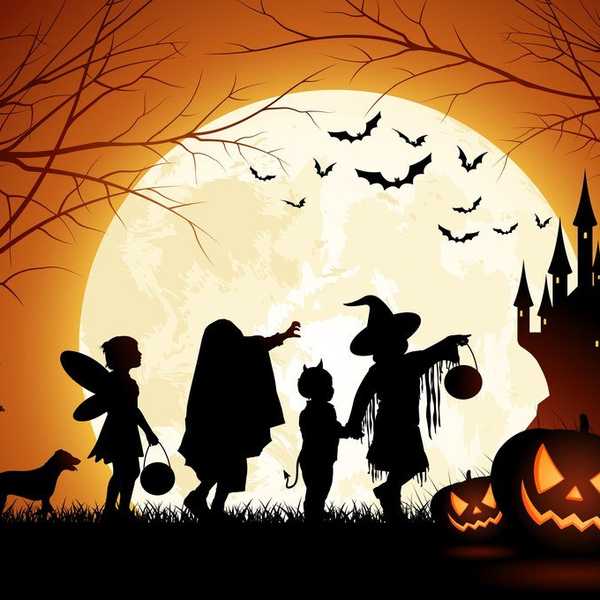Halloween is known as many things.
Some call it, "All Hallow's Eve". Some refer to it as, "All Saints Day". But many Christians are ignorant of Halloween's origins and why October 31st is so sacred to particular regions around the world.
Halloween's name wasn't originally "Halloween". In fact, its original name was "Samhain" which is modernly known as "November".
According to the History channel, its origin began around 3,000 years ago in Ireland. Between the last day of autumn and the first day of winter, the ancient Celts believed that the veil of the spirit world was thinned, thus allowing the dead to rise and walk among the living. And though the Celts believed some of the spirits were harmless, they also believed that some were not. This began the practice of which we know as trick-or-treating. The Celtic pagans would wheedle the ill-natured spirits away from their villages with sweets and foods - a practice we still perform today, though not religiously.
The pagans were serious about their spirituality. Fortune-telling was believed to be more easily accessed on this day which worked for their benefit; would their family members die? And what about their crops? Modern pagans still perform these rituals to this day which allows their heritage to survive.
Meanwhile, in Rome, they worshiped the goddess "Pomona" who ruled over the gardens and fruit of the physical world. The celebrations usually landed on November 1st and the Romans practiced a similar ritual that the pagans did; they laid out fruits and nuts, though for a goddess in lieu of spirits.
Eventually, the Romans spread across Europe. At this point, Samhain and Rome's particular day of worship to Pomona, mixed with one another. Honoring the dead and the harvest began to flourish among culture.
The influence of Christianity didn't arrive until the middle of the 7th century. They ("they" as in Christian believers) loathed the pagans and believed that their gods were purely evil. It wasn't until 600 A.D. that Christianity finally stepped in on the hallowed "Samhain".
Pope Gregory turned the Celtic celebration into "The Day of the Church" and then, on November 1st, announced the beginning of "All Saints Day". The act was a direct opposition against the pagan rituals - something that many Christians may have revered as a gesture of power. And much like Christmas Eve, "All Saints Day" was turned into "All Hallow's Day" which was then transformed into "Hallow's Eve". In modern English this is, "Halloween".
But like most Christians in the ancient world (and even still to this day) witchcraft was seriously forbidden. Hunts began to spread across Europe and, in the fifteenth century, Pope Innocent VIII outlawed paganism completely. Witches were considered "the devil's handmaiden" and cats were considered spirits of witches themselves, which is the result of black cat decor in modern day Halloween.
In the 17th century (the 1600's) the colonies were formed and the northern settlers despised Halloween. They believed that, because the Catholics embraced any form of it, is was not something relevant to their beliefs. The settlers hated Catholicism because it was their exact reason for immigrating - they wanted freedom from the church.
However, in the southern colonies, they embraced Halloween. Many consider this to be the beginning of "modern day Halloween". They believed that the spirit of Halloween wasn't necessarily bad, but that spirituality was a part of life. It was something to observe, to celebrate. Women took part in divination games where they would see their husbands through (essentially) fortune telling.
In the 1800's, "play parties" were introduced. These were gatherings where people would carve pumpkins. And when the Irish migrated to America, the holiday became more famous than it had ever been. This is when practices we still do today became prominent such as bobbing for apples and carving Jack-O-lanterns.
Halloween has flourished among the world as one of the most celebrated holidays. Many cultures celebrate it in different ways (another example is Mexico's "Day of the Dead"). But with Christianity's spiteful influence, should we as Christians celebrate the holiday?
Samhain and Pomona are considered sacred holidays where they perform hallowed rituals. So should followers of Christ take part in altered celebrations? Many would argue that Christmas should not be celebrated by non-Christian peoples, so why do we celebrate a holiday that is not based on our own spirituality? Or is because of the major altering of the holiday that we are allowed to take part in the festivities?
It's not so much of the paganism that offends some, but the disrespect of a consecrated religion. So this year while we celebrate Halloween, maybe we should study our surroundings; the black cat in your neighbor's window, the baskets of candy, and the "ghosts" stalking along your road.
Though the veil is considered translucent, let's hope a spirit is not at your doorstep.





















